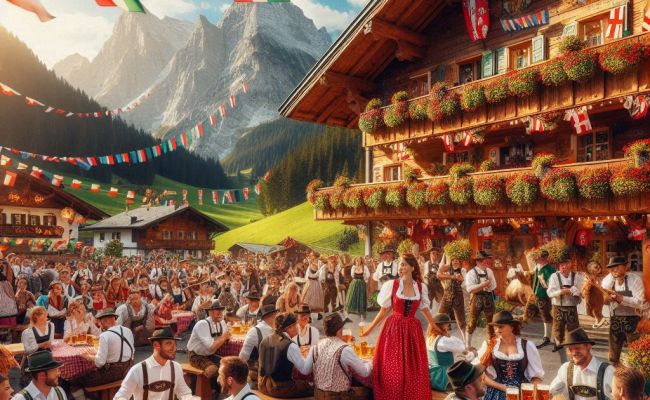Austria National Day, observed annually on October 26th, honors the country’s proclamation of permanent neutrality in 1955. This historic occasion commemorated Austria’s regaining sovereignty following World War II and the end of Allied occupation. In 1965, the official renaming of Independence Day to National Day took place.
The festival commemorates Austrian identity, culture, and history with the country’s ceremonies, concerts, and cultural events. It serves as a reminder of Austria’s dedication to world peace and neutrality, as well as its historical march toward freedom and self-determination.
History
On October 26th, 1955, the Austrian Parliament issued the Declaration of Neutrality, establishing Austria’s constitutional commitment to everlasting neutrality. The Soviet Union made this proclamation a requirement for Austria to sign the State Treaty in May 1955, which ended the country’s occupation by the Allies. The last foreign troops left Austria on October 25, 1955, solidifying Austria’s sovereignty.
Since then, neutrality has been an integral aspect of Austria’s national identity, with legal protections in both the Austrian constitution and international law. Despite Austria’s membership in the European Union, it maintains its neutral status, with ongoing debates over the unilateral change of this status and the potential impact of Austria’s EU participation on its neutrality.
Celebration
Austria’s National Day, held on October 26th each year, is a day filled with ceremonies and festivities commemorating the country’s history and identity. The day opens with a solemn Mass at Vienna’s Heldenplatz, attended by significant figures such as the Federal President and the Minister of Defense, which emphasizes Austria’s dedication to neutrality since the 1955 Declaration of Neutrality.
After the Mass, people place wreaths at the unknown soldier’s tomb outside the Burgtor Crypt to honor those who gave their lives for Austria and to reflect on the country’s transition from post-World War II occupation to sovereignty.
A special Council of Ministers meeting focuses on government contemplation and planning, reflecting Austria’s progress in the midst of historical memory. Cultural events include the Concert for Austria at the Vienna Staatsoper, which highlights the country’s artistic past and promotes national pride.
The day closes with the swearing-in of new recruits into the Austrian Armed Services, which represents unity and commitment to national security. Citizens in Austria have free entry to federal museums, which encourages cultural engagement. Public and commercial organizations, such as the Federal Chancellery, open their doors, encouraging visitors to participate in events that teach about Austria’s governance and legacy.
Austrian embassies around the world hold receptions and activities to connect with individuals from other countries, boosting cultural diplomacy and global relations. Austria’s National Day acts as a reminder of the country’s tenacity, togetherness, and determination to maintain its individual character in the face of global complications.
FAQ
When is Austria’s National Day?
Austria’s national holiday (German: Nationalfeiertag) is a public holiday observed on October 26th each year. This public holiday honors Austria’s declaration of neutrality on this day in 1955.
